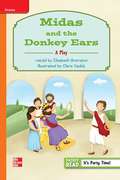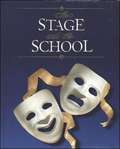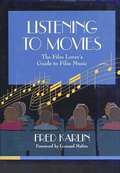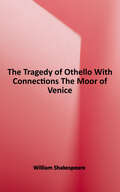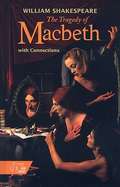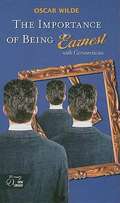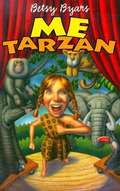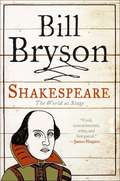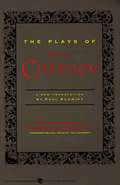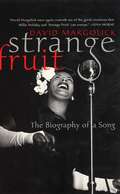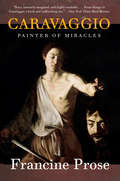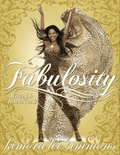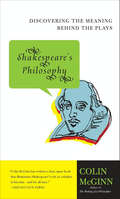- Table View
- List View
Voice and the Actor
by Cicely BerryThere is no right way--there are only a million wrong ways, which are wrong because they deny what would otherwise be affirmed. Wrong uses of the voice are those that constipate feeling, constrict activity, blunt expression, level out idiosyncrasy, generalize experience, coarsen intimacy. These blockages are multiple and are the results of acquired habits that have become part of the automatic vocal equipment; unnoticed and unknown, they stand between the actor's voice as it is and as it could be and they will not vanish by themselves. So the work is not how to do but how to permit: how, in fact, to set the voice free. And since life in the voice springs from emotion, drab and uninspiring technical exercises can never be sufficient. Cicely Berry never departs from the fundamental recognition that speaking is part of a whole: an expression of inner life.
Midas and the Donkey Ears: A Play [Approaching Level, Grade 3]
by Elizabeth BreretonNIMAC-sourced textbook
Mandragola
by Niccolo Machiavelli Anne Paolucci Henry PaolucciWritten somewhere between 1512 and 1520, this is a comedic play in which a love stuck young man tries to win the affections of the young, beautiful wife of an old doctor.
The Stage and the School
by Harry H. Schanker Katharine Anne OmmanneyThe Stage and the School offers more of what you've always loved about the nation's most comprehensive high school drama program. More hands-on exercises. More teacher support. More discussion of the conventions of the theatre. More opportunities to creative expression through performance. More connections to the other arts. With all the hands-on exercises and application activities, scenes and monologues, chapter openers and reviews, students are provided with every opportunity for success.
Listening To Movies: The Film Lover's Guide To Film Music
by Fred KarlinThis text is a lay person's guide to the world of film music, from the silent era to the present day. Oscar-winning film composer Fred Karlin describes how music is written and recorded for the movies; who the composers are and how they work with film makers; and the music itself - what to listen for in a film score, and what makes one score better than another.
The Tragedy of Othello: The Moor of Venice (Bantam Classic)
by William Shakespeare David Scott KastanThough this great tragedy of unsurpassed intensity and emotion is played out against Renaissance splendor, its story of the doomed marriage of a Venetian senator's daughter, Desdemona, to a Moorish general, Othello, is especially relevant to modern audiences. The differences in race and background create an initial tension that allows the horrifyingly envious villain Iago methodically to promote the "green-eyed monster" jealousy, until, in one of the most deeply moving scenes in theatrical history, the noble Moor destroys the woman he loves only to discover too late that she was innocent. Each Edition Includes: - Comprehensive explanatory notes - Vivid introductions and the most up-to-date scholarship - Clear, modernized spelling and punctuation, enabling contemporary readers to understand the Elizabethan English - Completely updated, detailed bibliographies and performance histories - An interpretive essay on film adaptations of the play, along with an extensive filmography From the Paperback edition.
The Tragedy of Julius Caesar with Connections
by William ShakespeareThis famous Shakespearean Tragedy underlines the human dynamics of leadership, it's risks, the development of treachery and the nature of betrayal.
The Tragedy Of Macbeth: With Connections (Holt McDougal Library, High School With Connections Ser.)
by William Shakespeare Holt StaffThe Holt McDougal Library includes a mix of fiction, nonfiction, drama, poetry, and biographies from a variety of reading levels for use as part of classroom curriculum or independent reading. Students will find selections they love in this extensive collection.
The Importance of Being Earnest with Connections
by Oscar WildeHolt McDougal Library, High School with Connections
A Midsummer Night's Dream with Connections (Hrw Library)
by William ShakespeareShakespeare lives on, for his plays are still frequently produced all over the world. A Midsummer Night's Dream remains a favorite of audiences because of its touching and amusing characters and lovely language. The "Connections" section of this Holt, Rinehart, and Winston edition of William Shakespeare's fantastic comedy distinguishes it among so many other versions. Eleven related selections - literary and some not so literary - shed light on the play's universal appeal.
William Shakespeare and the Globe
by AlikiFrom "Hamlet", to "Romeo and Juliet", to "A Midsummer Night's Dream", Shakespeare's celebrated works have touched people around the world. Aliki combines literature, history, biography, archaeology, and architecture in this richly detailed and meticulously researched introduction to Shakespeare's world-his life in Elizabethan times, the theater world, and the Globe, for which he wrote his plays. Then she brings history full circle to the present-day reconstruction of the Globe theater.
Me Tarzan
by Betsy ByarsNobody knew Dorothy could do such a tremendous Tarzan yell. Not Dwayne, Dorothy's enemy, who wants the part of Tarzan in the class play more than she does. Not Mr. Mooney, their teacher, who has no choice but to give Dorothy the part. Not Dorothy's parents, who are as uneasy as Mr. Mooney about it. Not even Dorothy! But when the uncontrollable urge comes over her--the smell of the jungle, the sense of raw, primitive emotions, the wildness--Dorothy lets out a Tarzan yell so loud, so effective, they all feel its incredible power. And so do the neighborhood animals. More and more animals gather whenever Dorothy practices. Then the circus comes to town, and a puma escapes to Dorothy's yard after one of her yells. What will happen on the night of the play--which also happens to be the opening night of the circus-when Dorothy is determined to give the yell of her life? Betsy Byars's lighthearted story is as exuberant and surprising as Dorothy's Tarzan yell.
Do-Over
by Rachel VailVail's most lauded book to date, "Do-Over" is the story of 13-year-old Whitman, who has to deal with the anger he feels towards his father when his parents separate, his own interest in several girls, and the heady feeling of acting in his first play.
Shakespeare: The World as Stage
by Bill BrysonAmerican native Bryson, alive and well in England, sets out what little is known about the life of the Elizabethan playwright and samples the voluminous scholarship about his work and its influence on English as a language and a body of literature. His approach is lighthearted and non-technical. Annotation ©2008 Book News, Inc., Portland, OR (booknews.com)
A Year in the Life of William Shakespeare
by James S. ShapiroThose with a keen interest in Shakespeare will enjoy insight into the man, his work and his times. Shapiro knows his readership will be a motivated one and is counting on the subject material to drive them to carry on. What makes the book an engaging read is the political context it provides. We begin to understand why he wrote some of his plays and certain characters, and what pressures he would've dealt with keeping his craft "cutting-edge", but popular to the masses, as well as staying in the Queen's favor.
The Plays of Anton Chekhov
by Anton ChekhovThese critically hailed translations of The Seagull, Uncle Vanya, The Three Sisters and the other Chekhov plays are the only ones in English by a Russian-language scholar who is also a veteran Chekhovian actor. Without compromising the spirit of the text, Paul Schmidt accurately translates Chekhov's entire theatrical canon, rescuing the humor "lost" in most academic translations while respecting the historical context and original social climate. Schmidt's translations of Chekhov have been successfully staged all over the U. S. by such theatrical directors as Lee Strasberg, Elizabeth Swados, Peter Sellars and Robert Wilson. Critics have hailed these translations as making Chekhov fully accessible to American audiences. They are also accurate -- Schmidt has been described as "the gold standard in Russian-English translation" by Michael Holquist of the Russian department at Yale University.
Strange Fruit: The Biography Of A Song
by David MargolickRecorded by jazz legend Billie Holiday in 1939, "Strange Fruit" is considered to be the first significant song of the civil rights movement and the first direct musical assault upon racial lynchings in the South. Originally sung in New York's Cafe Society, these revolutionary lyrics take on a life of their own in this revealing account of the song and the struggle it personified. Strange Fruit not only chronicles the civil rights movement from the '30s on, it examines the lives of the beleaguered Billie Holiday and Abel Meeropol, the white Jewish schoolteacher and communist sympathizer who wrote the song that would have an impact on generations of fans, black and white, unknown and famous, including performers Lena Horne, Eartha Kitt, and Sting.
The Summer of Naked Swim Parties: A Novel
by Jessica Anya Blau“This book will make you laugh and cry in public.” —Larry Doyle, author of I Love You, Beth CooperJessica Anya Blau's passionate and poignant debut novel of one girl’s coming of age in 1970s southern California, replete with stoners, hippies, surfers, bitchy girlfriends, first love, first heartbreak, and OPI shorts Jamie Green will remember “the summer of naked swim parties” for the rest of her life. It’s the summer in which she has her first serious boyfriend, Flip, who is three years older and comes with friends for Jamie’s friends; it’s the summer in which Jamie’s older sister is away at Outward Bound, leaving Jamie with her parents (and very often the house) to herself; it’s the summer in which Jamie’s parents throw naked swim parties, leaving Jamie cringing with embarrassment. And it’s the summer in which Jamie will be forced to confront love, loss, family, and heartbreak for the very first time.
Caravaggio: Painter of Miracles (Eminent Lives)
by Francine Prose“Matching gorgeous prose to gorgeous artworks, Prose responds to each image as a moment of theatrical revelation, sensual or spiritual, and frequently both.” — Boston Sunday GlobeIn Caravaggio, New York Times bestselling author Francine Prose offers an enthralling account of the life and work of one of the greatest painters of all time. Caravaggio defied the aesthetic conventions of his time; his use of ordinary people, realistically portrayed—street boys, prostitutes, the poor, the aged—was a profound and revolutionary innovation that left its mark on generations of artists. His insistence on painting from nature, on rendering the emotional truth of experience, whether religious or secular, made him an artist who speaks across the centuries to modern day. Called “racy, intensely imagined, and highly readable” by the New York Times Book Review, Caravaggio includes eight pages of color illustrations, and is sure to appeal to art enthusiasts interested in one of history’s true innovators. Caravaggio is part of the “Eminent Lives” series from HarperCollins, a selection of biographies by distinguished authors on canonical figures
Check, Please!: Dating, Mating, & Extricating
by Janice DickinsonSupermodel Janice Dickinson’s over-the-top quest for Mr. Right is a hilarious rollercoaster of famous names, outrageous stories, and vicarious thrills.The inimitable, outrageous Janice Dickinson—America’s first supermodel and the bestselling author of No Lifeguard on Duty and Everything About Me Is Fake... And I’m Perfect—now serves up her most scintillating kiss and tell-all yet in Check, Please! Loaded with uncensored dish on her dating sagas and her stranger-than-fiction bedroom adventures, Check, Please! shows Dickinson as a real life Samantha Jones, and three decades at the top of the fast-track, glamorous world of modeling have given her a wealth of juicy stories. Dickinson dissects nearly 100 dates over a 25-year span—each one more jaw-droppingly outrageous than anything Jackie Collins could dream up. (There’s the Big Pharma billionaire, for example, who blurts out his fantasy of having Swarovski crystals shoved in every orifice before they’ve finished the first course of their first date—a declaration that forces Dickinson to quickly abandon the fantasy of “free botox forever” that he’d inspired in her.) Dickinson’s dates also reflect the changing times and the evolution of what she’s looking for in a man. From the unfettered hedonism of the 80s, a decade spent in white-hot one night stands and steamy affairs, to her heightened desire to find Mr. Right during the 90s, to her current state of play, Check, Please! is a fun, over-the-top vicarious thrill ride—with a core that’s highly relatable.
Fabulosity: What It Is & How to Get It
by Kimora Lee SimmonsFabulosity (n): 1: a state of everything that is fabulous 2: a quality ascribed to that which expresses glamour, style, charisma, power, and heartKimora Lee Simmons knows what it means to have fabulosity -- and she wants to tell you how to get it.In this empowering new book, Kimora -- a top model, wife of hip-hop legend Russell Simmons, mother to two daughters, a national media presence, and president and creative director of the multimillion-dollar Baby Phat company -- shares her personal secrets of success and fabulosity.Kimora knows that in today’s ultracompetitive world, it’s not enough for women just to be smart or dress well. With too much to do and competition everywhere, the savvy woman must know how to combine feminine glamour with professional power, business ambition with personal values, and confidence with heart. Kimora is the living picture of all these things. What are Kimora’s secrets to achieving her goals, her signature fabulosity? One is her ability to identify and build upon her own unique talents and strengths. In Kimora’s case, she brilliantly combined the two worlds she knows best -- the high fashion and hip-hop scenes -- to create Baby Phat, her ultrasuccessful hip-hop inspired lifestyle brand.How do you uncover and develop your own special talents? Kimora shares her step-by-step guide to achieving your wildest dreams, including her 16 laws of success, which cover everything you need to become the woman you want to be.Whether you’re college-educated or street smart, just starting out or at the top of your game, Fabulosity has something to say to you. Learn how to cultivate Power, Independence, Confidence, and Positivity in everything you do, whether it’s finding Mr. Right, snagging that corner office, or rocking the latest fashion trend. Packed with useful lessons and Kimora’s personal tips, this book will be your instruction manual to empowering yourself, turning your individual talents into permanent success, and unleashing your inner fabulosity.
Polly: A Novel
by Amy BryantIf you're looking for Polly Clark, she'll be the girl wearing Doc Martens and a Bad Brains T-shirt at the punk show. She'll be (almost) losing her virginity to a high school dropout, accompanied by the Beastie Boys' "No Sleep Till Brooklyn." She'll be looking for her artistic soul while trying to solve the mysteries of guys, life, her seriously dysfunctional family . . . and herself.In eight chapters, Polly is shaped by eight relationships in this honest, tender, original, and utterly endearing story of one girl's stumbles and successes in the world of punked-out 1980s suburban romance -- the unforgettable debut of an extraordinary new voice in contemporary fiction.
Shakespeare's Philosophy: Discovering the Meaning Behind the Plays
by Colin McGinnShakespeare’s plays are usually studied by literary scholars and historians and the books about him from those perspectives are legion. It is most unusual for a trained philosopher to give us his insight, as Colin McGinn does here, into six of Shakespeare’s greatest plays–A Midsummer Night’s Dream, Hamlet, Othello, Macbeth, King Lear, and The Tempest. In his brilliant commentary, McGinn explores Shakespeare’s philosophy of life and illustrates how he was influenced, for example, by the essays of Montaigne that were translated into English while Shakespeare was writing. In addition to chapters on the great plays, there are also essays on Shakespeare and gender and his plays from the aspects of psychology, ethics, and tragedy.As McGinn says about Shakespeare, “There is not a sentimental bone in his body. He has the curiosity of a scientist, the judgment of a philosopher, and the soul of a poet.” McGinn relates the ideas in the plays to the later philosophers such as David Hume and the modern commentaries of critics such as Harold Bloom. The book is an exhilarating reading experience, especially for students who are discovering the greatest writer in English.
The Works of John Leguizamo: Freak, Spic-o-rama, Mambo Mouth, and Sexaholix
by John LeguizamoThis volume collects all four of the writer-performer’s legendary, award–winning solo shows.John Leguizamo rose to stardom with a series of critically acclaimed solo shows in which he embodied a diverse cast of unforgettable characters. Now all four of these classic theatrical works—Freak, Spic-o-Rama, Mambo Mouth, and Sexaholix—are available in this one essential volume.Mambo Mouth Leguizamo’s first show was an Off-Broadway sensation. In it, he portrayed seven different Latino characters in a bravura performance that earned him both Obie and Outer Critics Circle awards. Spic–O–Rama A “dysfunctional family comedy,” presents 24–hours in the life of one family. It enjoyed a sold–out run in Chicago before relocating to New York where it won its creator a Drama Desk Award. Freak Leguizamo’s Broadway debut tells his own coming–of–age story. A “demi–semi–quasi–pseudo–autobiography,” which went on to become an Emmy special on HBO. Sexaholix: A Love Story Leguizamo’s “raunchy-yet-sweet comic solo performance”—a hit on both Broadway and HBO—explores his own coming of age as he transforms into a father and family man (Washington Post).

